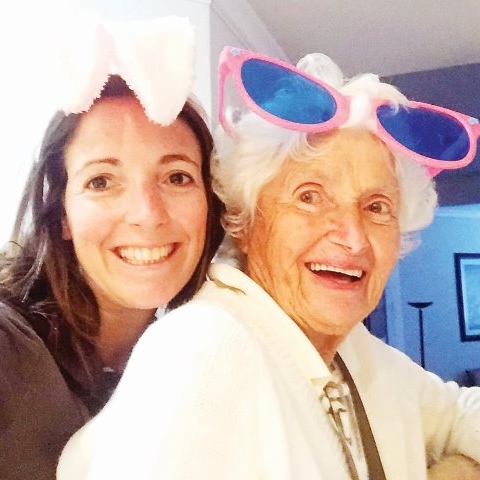click to dowload our latest edition
CLICK HERE TO SUBSCRIBE TO OUR NEWSLETTER


Published
5 years agoon
By
adminGILLIAN KLAWANSKY
Lured by such home-spun memories, many South African expats head home to be reunited with their families for Rosh Hashanah and Yom Kippur.
Having lived in London for 13 years, Tarryn Lazarus is heading home to Port Elizabeth for the high holy days. Her homecoming will be extra special this year. “My sister lives in Cape Town, and she’s flying down for Yom Kippur,” says Tarryn. “It will be the first time the whole family will be together for yom tov since I moved to London.”
Tarryn usually spends the chaggim (Jewish holidays) in London. “I usually go to family who I’m lucky to have there. They’re quite distant relatives from South Africa, but they treat me like close family, and always make sure I’m included in their celebrations. Being so many miles away from home, it’s special to be embraced in a different country, especially during my first few years away. [Then], it’s not such a lonely experience.”
Yet there’s nothing like home. “I’m looking forward to my mom’s cooking, and special time with the family,” says Tarryn. “My gran is 91, so I get to spend time with her. Whenever we do the candles, she gives us a blessing, and it’s very special. I missed her 90th birthday, so I’m really looking forward to spending time with her. I’m also looking forward to kichel and babkas, which are hard to come by in the United Kingdom,” she laughs.
Married couple Sianne and Marc Menashe are travelling home to Johannesburg for yom tov. “We’ve been living in London for two years,” says Sianne. “When we moved for my husband’s work, we agreed that I’d come home every six months. We usually do Pesach or Rosh Hashanah. When you’re overseas, you miss your family and friends every day, but yom tov is a time where you long for that familiarity.
“I’m looking forward to being with my sister’s kids over Rosh Hashanah,” she says, “being actively involved in the lives of the next generation, and just having that family time with them. I also love the familiarity of sitting around the table and talking about previous years, when grandparents were alive and before some of the family emigrated. It’s comforting. It’s just a time when we’ve always been with our families – you don’t want to be with strangers.”
The Menashes have, however, built a strong base of South African friends with similar traditions in London. “All South Africans support each other here, so we usually go to them for meals or have them at us on Shabbat or yom tov when we’re not in South Africa,” says Sianne.
Born and raised in the United Kingdom, Yisroel Fletcher met and married Naomi, a South African girl. Though the couple lived in South Africa for eight months, they made aliyah in November 2016. They’ve since had two children, but remain committed to spending certain chaggim with their families.
“My parents are in the UK and my parents-in-law are in Johannesburg,” says Yisroel. “As a young couple who made aliyah and doesn’t have any family in Israel, it’s really important to us to see our parents and families at least once a year, if not more often. We choose the chaggim to do that because we feel they – especially Sukkot and Pesach – are big family times.” The two usually spend one of these chaggim in England, and the other in South Africa.
This year, the couple, together with their two-year-old daughter, Liora, and five-month-old son, Raphael, are coming to Johannesburg for Yom Kippur and Sukkot. “When I think of Sukkot, I don’t only think of lulav and etrog and sitting in the sukkah for meals, it’s about quality family time,” says Yisroel. “I think about afternoons with my family playing Monopoly in the sukkah, or the hikes and outings we do on chol hamoed [the weekdays of the festival]. For me, that’s part and parcel of the chag.”
For the Fletchers, being with their parents, siblings, and extended families on the chaggim is also about building special memories for their children. “Our children can sit at the seder table or inside their grandparents’ sukkah. As parents, seeing your children sitting in the same sukkah or around the same seder table, having the same experiences you had as a kid is something really special.”
During the year, their kids interact with their grandparents by video call. “Interacting physically with their grandparents, sitting on their laps, and realising that they don’t just appear on a screen, they’re real people, is really important,” says Yisroel. “I grew up extremely close to my grandparents, they were like an extension of my parents. That’s something that’s a lot harder to replicate living overseas. But when we have the opportunity to give them that quality time, we embrace it.”
Sarah*, who’s lived in the UK for two years, is planning to surprise her family for Rosh Hashanah.
“It was going to be my first chag without them, and I so want to be with them,” she says. “We’re a family who often surprises each other, and now I get to surprise them! Yom tov is really special to us as a family, it’s a time when we all get together. For us, Rosh Hashanah has always been one of the most special holidays.”
Sarah says the chaggim are different in London. “I’ll probably struggle when I have to skip a year of coming home for yom tov. The more traditional and less religious British families don’t take the holidays as seriously as we do in Joburg. They keep it small, and don’t entertain as much. But having South African family friends in London means I’ll always get an invitation over yom tov, so I’m lucky. There’s nothing like home, though.”
*name has been changed
